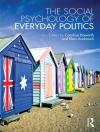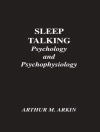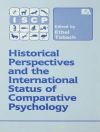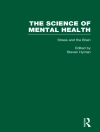In ‚The Psychology of Hashish, ‚ Aleister Crowley delves into the intricate relationship between psychoactive substances and the human psyche. Written in a distinctive blend of philosophical discourse and personal narrative, Crowley artfully interweaves his experiences with hashish, reflecting on its impact on consciousness, perception, and creativity. The book serves as both a memoir and a treatise, grounding its insights in the broader context of early 20th-century occultism and the growing interest in altered states of consciousness prevalent in literary and artistic circles of the time. Crowley’s exploration transcends mere hedonism, aiming to elucidate the nature of reality itself through the lens of hashish-induced experiences. Aleister Crowley, often labeled as the ‚Great Beast‘ due to his controversial practices and ideologies, was a notable figure in the early modern occult movement. Having drawn from various philosophical traditions and mystical practices, including Thelema, Crowley’s life was marked by a pursuit of transgressive experiences that challenged societal norms. This background undoubtedly influenced his writing, imbuing it with a daring perspective that seeks to provoke thought and expand understanding of human potential. Readers intrigued by the intersections of psychology, spirituality, and substance experience will find ‚The Psychology of Hashish‘ an enlightening journey. Crowley’s unapologetic exploration not only stimulates the mind but also invites introspection, making it a compelling read for those interested in the depths of human consciousness and its capacities for transcendence.
Über den Autor
Aleister Crowley (1875–1947), an influential and controversial figure in the world of Western esotericism, was a prolific English writer, mystic, and ceremonial magician. Best known for his esoteric works and founding the religious philosophy of Thelema, Crowley’s life and teachings have attracted both fervent admiration and criticism. Expanding his influence across various domains, he penned ‚The Psychology of Hashish‘ amongst his eclectic array of literary outputs. This work offers an exploration of the effects of cannabis on the human mind, filtered through Crowley’s unique perspective combining mysticism with keen psychological insights.
Crowley’s literary style often wove together his extensive knowledge of mysticism, magick, and the occult with his experiences in altered states of consciousness. His writing is characterized by the use of symbolism and the bold proclamation of his personal spiritual and philosophical convictions. In ‚The Psychology of Hashish, ‚ Crowley’s narrative is both analytical and autobiographical, reflecting his broader body of work, which ranges from poetry and essays to instructional texts on magickal practices. As with many of his writings, this piece blends scholarly exposition with personal experimentation, inviting readers to examine the interplay between substance and spiritual experience through Crowley’s unique lens. Whether being hailed as a prophet of a new age or denounced as a practitioner of the dark arts, Crowley’s legacy endures as a seminal figure in modern esoteric thought and literature.












